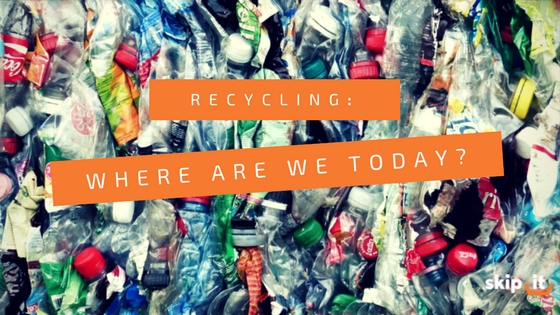The government recently announced they are looking into a new reward and return scheme for recycling on plastic bottles. The proposals would introduce a financial reward for those who return empty plastic and glass bottles, in a bid to reduce the 43 per cent of all plastic bottles that still fail to be recycled. It looks to be an encouraging development in tackling the challenges of 21st century waste collection.
This follows on the heels of other successful government initiatives like the plastic bag charge, which has reduced the use of plastic bags by 83 per cent. Similar ‘return and reward’ schemes have been tried in other countries and have seen significant benefits. In Norway, for instance, the scheme has ensured that 96 per cent of eligible waste is returned and recycled.
Understanding the Challenges of Recycling
The proposal is unquestionably a good one, and follows on the heels of years’ worth of recycling progress. But with figures like 43 per cent of plastic bottles remaining unrecycled, it’s important to remember that there is valuable work still to do.
While we all know that recycling is important, it can be often difficult to see its effects. Global warming, after all, has not been cancelled, and doesn’t look set to be. It’s all too easy for us to throw a plastic bottle in the landfill; safe in the knowledge that one bottle out of millions won’t make all that much difference. So perhaps it’s worth taking a moment just to remind ourselves how far we’ve come, where we still have to go, and why recycling that one bottle really does help.
Recycling – a revolution in waste collection?
In the year 2000, just 11 per cent of household waste was recycled. The figure rose impressively in the following decade, reaching 41.5 per cent in 2010. Unfortunately, progress since then has been limited – the highest percentage we’ve yet achieved is 43.7 per cent in 2014/15, and the figure actually reduced last year.
Our national target is to recycle 50 per cent of all household waste by 2020. Last year’s figures remain among the highest we’ve ever achieved, but if we have any chance of meeting our long-term targets, they are going to need to rise faster than they have been.
Why Recycling Is Crucial for the Environment?
It’s quite easy to think that the amount we recycle makes no long-term difference. What does waste collection have to do with global warming anyway? Here are some statistics that might surprise you.
• Waste that decomposes in landfills releases methane gas. In fact, in the US, landfill sites have been identified as the single biggest contributors of methane – a leading cause of global warming.
• Of all types of recycling, paper is the most important. Every ton of paper recycled is said to save 17 trees from being cut down.
It might be difficult to correlate what goes in your bin with gases in the planet’s atmosphere, but there is a clear and important link. Fewer trees mean more CO2, and more landfill mean more methane.
Responsible waste collection services
It may seem like small efforts won’t make much difference. But the 30 per cent rise in recycling figures from 2000-2015 is a result of small, but meaningful efforts from people up and down the country. We hope initiatives like the one announced by the government will incentivise this – but it’s clear that progress can’t be made without the willpower of businesses like ours and individuals like yourselves.
That’s why we’re proud to lead the way in sustainable waste clearance services. Of all the waste that we process, over 90 per cent is diverted away from landfills. It’s important to us that we can carry on doing a fantastic job in the community for many decades yet to come. If creating this future is as important to you as it is to us, then next time you need skip hire, wait and load, or anything else, we hope you’ll think to contact a company who shares your responsible waste management goals, like Skip It.
Contact our friendly team today to find out more about our household waste services. Related articles:







